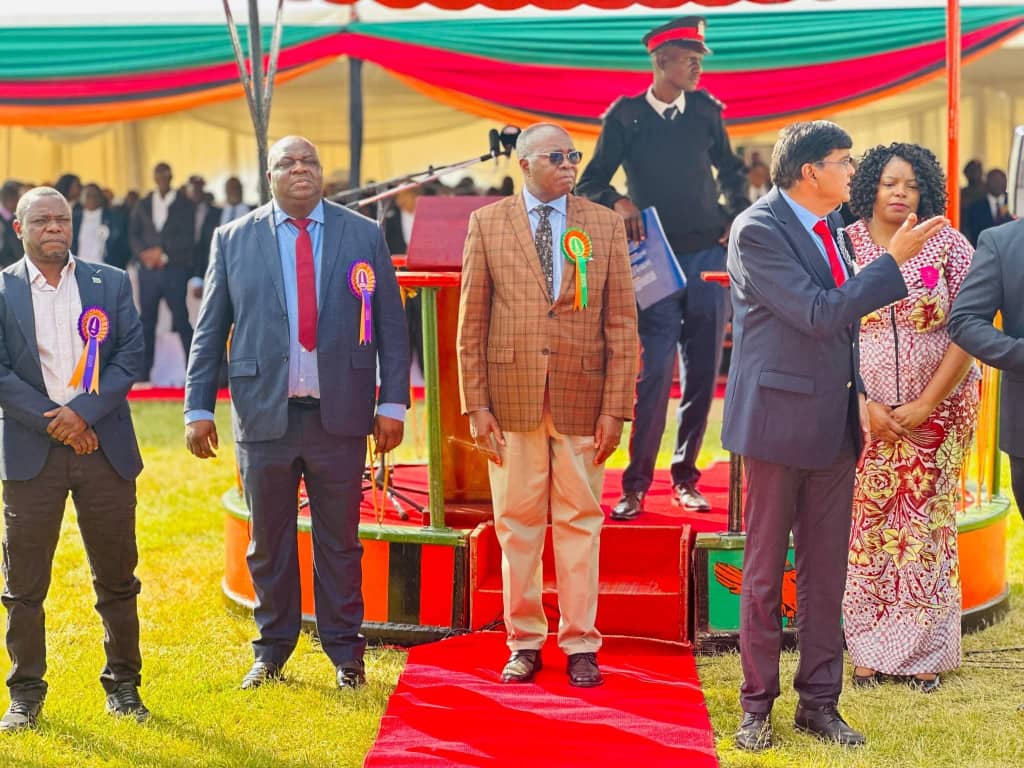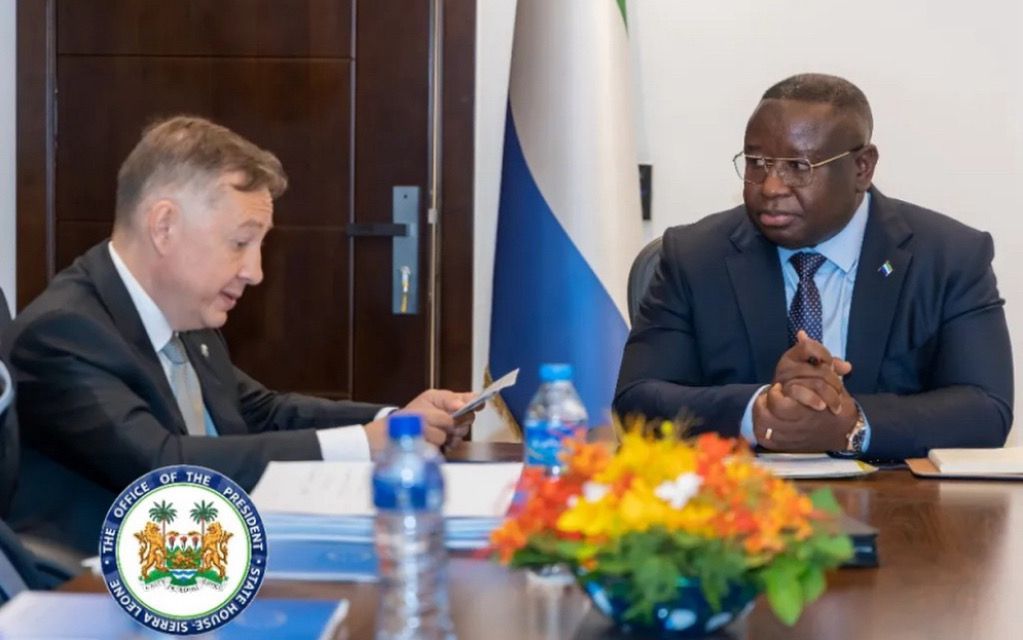HH win inspires financial markets confidence
By JOHN CHOLA
Contrary to initial fears by some market observers that an election victory for Hakainde Hichilema’s United Party for National Development (UPND) may spark protests or judicial actions by the Patriotic Front (PF), Edgar Lungu’s concession eradicated nearly all possibility of post-election disruptions.
Analyst Irmgard Erasmus of NKC African Economics now anticipates positive financial markets responses arising from an anticipated market-centred framework and centrist approach to policy making by the new administration.
A market-centred framework would support a higher medium-term growth trajectory, a stronger focus on fiscal consolidation, and a strengthening of external trade.
“That being said, the process will not be quick, as the consumer will remain burdened by high inflation as well as the direct and spillover effects of the Covid-19 pandemic and the systematic adjustments towards fiscal corrections.”
For 2021, NKC African Economics have adjusted their growth projection to 1.8 per cent, supported primarily by higher copper earnings.
“We expect growth to quicken to 2.2 per cent in 2022 and 2.5 per cent by 2023, with the strain of the sovereign default and slow progress towards inoculations against Covid-19 to remain quite evident. Thereafter, higher foreign direct investment (FDI) and progress towards consolidation should lead the way towards an accelerated growth path.”
Erasmus sees the incoming President, affectionately known as HH, as being tasked with taking control of a ship caught in troubled economic waters.
The organization believes that with a background in finance and economics, and being a respected businessman, President Hichilema as a free marketer is predisposed to policies that utilize the price mechanism to dictate asset allocation, albeit within the confinements of an employment-boosting framework.
It is expected that HH will not follow a strong interventionist approach as seen during Michael Sata’s rule, and to a lesser extent, of Lungu’s time in office.
MORE PRAGMATIC
Erasmus notes that among the suite of changes expected from the new leadership, the overarching narrative is one for a more pragmatic approach to policy making and execution. The drift towards resource nationalism within the mining sector is also expected to be reversed, with greater emphasis on front-loaded consolidation and a quicker resolution of the debt restructuring exercise.
Zambia has already made progress with regard to the transparency of public sector debt over the past year, but the markets believe the underlying tension between creditors remained largely unaddressed.
“Also, the pace of progress under the G20 Common Framework (G20 CF) has disappointed. Progress made by Zambia and Ethiopia has undershot general expectations. For both countries, the slower-than-expected progress has, in turn, elevated the probability of disruption upon the maturity of the Debt Service Suspension Initiative (DSSI) by end-2021,” says Erasmus.
The Oxford Economics Company expects that greater emphasis will now be placed on the IMF-guided, collective creditor approach to debt restructuring, more specifically the conclusion of the joint IMF-World Bank Debt Sustainability Analysis (DSA).
Erasmus notes that the outcome of the DSA will dictate the policy recommendations under the debt treatment, which will extend to the bond swap negotiations.
“The linchpin of accelerated debt profiling is considered to be the formal engagement with the IMF, beyond the Fund’s role as a mediator as dictated by the G20 CF. We expect that the IMF will ink a deal with Zambia on a three-year technical and financial support programme, which will provide a much-needed cash injection, crowd-in concessional creditors, and appease commercial creditors,” she opines.
The NKC African Economics analyst further recalls that President HH indicated that “all creditors will be treated equally,” strengthening the perception that the pari passu (side by side) principle will be followed.
TENSION
Erasmus said this may have previously been the case, but lopsided credit information fostered an environment of tension between creditors.
President HH furthermore committed to transparency in debt negotiations; however, Erasmus notes, confidentiality clauses on project financing will likely still present challenges that require a mediator (the IMF). As such, creditors are expecting to now engage with a government that has not been tainted by a loss of credibility.
Even with the expectation of enhanced transparency in the negotiations process, NKC African Economics expect, however, that the debt restructuring and bond swap agreements will be a multi-year process and that net present value (NPV) neutrality will not be achievable.
“Nonetheless, in the absence of an IMF-supported DSA, the probable scenarios for credit losses vary quite a bit.”
Erasmus believes the transmission of the election outcome will, over the near term, focus on the expectations and investment sentiment channels.
INVESTOR SENTIMENT
“We have already witnessed the improvement in investor sentiment—in anticipation of a post-election IMF deal—by July. This improved sentiment manifested primarily through higher subscriptions to government auctions, and the indirect support of the kwacha exchange rate. We expect a continuance of the enhanced appetite for treasury securities, which should bring two immediate outcomes: (i) a compression of the debt curve and (ii) lower reliance on central bank deficit funding.”
Furthermore, NKC African Economics laments, weak subscription to government debt auctions narrowed the pool of available funds to meet the fiscal deficit. Due to the sovereign default and the commencement of the debt restructuring process, Zambia has been excluded from external capital markets as an avenue to meet funding requirements.
Combined, Erasmus’ cautions, these two factors fostered an environment conducive to central bank deficit funding, which—if left to continue unabated—undermines central bank independence and the efficient transmission of central bank policy signals. Ultimately that setting fuels core inflation, undermines the value of the kwacha, and deflates the value of kwacha-denominated debt.
RESTORATION OF CONFIDENCE
The restoration of confidence in fiscal stewardship and broadening the capital base should help compress the debt curve and, in turn, lower outlays for domestic debt interest payments.
“This will create the necessary fiscal space for pro-poor initiatives and growth-supportive capex. In addition, the improving prospects for the kwacha exchange rate should steer foreign capital towards the Zambian domestic market, the large risk premium resulted in the kwacha trading undervalued to our estimated long-run equilibrium estimation.
“Investor expectations that this value gap may now be allowed to narrow should further entice investment in the local market,” Erasmus notes.
“We attach a low probability to the pursuit of populist policies, which supports a narrative of a strengthening fiscal position via the channel of an improving primary balance (the fiscal shortfall prior to the deduction of interest expenses).”
Oxford Economics Company advises that under the assumption that the incoming party will pursue market-orientated policies and settle their attention on lowering barriers to doing business, the fiscal consolidation agenda should find support from quickening revenue growth to improve expenditure controls.
Erasmus said in this regard, the Oxford Economics Company would expect a more market-friendly approach to the extractive sector in order to attract further foreign direct investment (FDI).
A more market-orientated, pragmatic approach to the mining tax code and sound handling of disputes with miners should pave the way towards an improvement of the non-interest current account.
“Combined with greater fiscal space, this should pave the way towards a higher medium-term growth trajectory.”








Leave a Reply